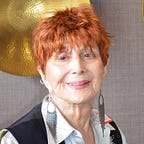Yes, about the men.
August 28, 2017: (Updated 3 June 2018) The few stories concerning men that came my way mostly had to do with their (usually) negative reactions to what the feminists wanted. George Gilder was downright outraged by these women’s desire to be out in the world. His place for them was as men’s helpmates at home.
For his views, set forth in his 1973 book, ‘Sexual Suicide,” Time magazine dubbed him “leading male chauvinist pig author,” a title he told me he rather liked. “I am unalterably opposed to the women’s movement,” he said. I interviewed him a year later, when he came around with another book, “Naked Nomads,” in which he promoted the perks of marriage for men. “Single men are losers,” said this then single man of 36 who seemed he may have been having trouble landing a wife.
But then came along another, happier, story, this one about men whose wives or girlfriends were in the women’s movement. They began starting their own conscious-raising groups. “Men don’t know what hit them,” a woman psychologist said, sympathetically.
- Women’s Lib Is a Fright to Frenchmen, The Washington Star, April 10, 1976
- Can You Pity This Sad, Single Male Chauvinist?, The Washington Star News, September 17, 1974
- Demystifying the Masculine Mystique, The Washington Sunday Star and Daily News, October 1, 1972
- Feminists Spiked Dr. Spock’s Revisions To His Famed Book, “Baby and Childcare”, The Washington Star, April 17, 1976 — NEW 29 October 2017
- “My Fair Lady’s” Rex Harrison Happily Belittles Women’s Lib: Oozing charm from every pore, he still enchants women of a certain age, The Washington Star-News, Early 1970’s — NEW 3 June 2018
[Section J (#50) in a collection of more than 100 newspaper articles by Judy Flander from the second wave of the Women’s Movement reflecting the fervor and ingenuity of the women who rode the wave.]
